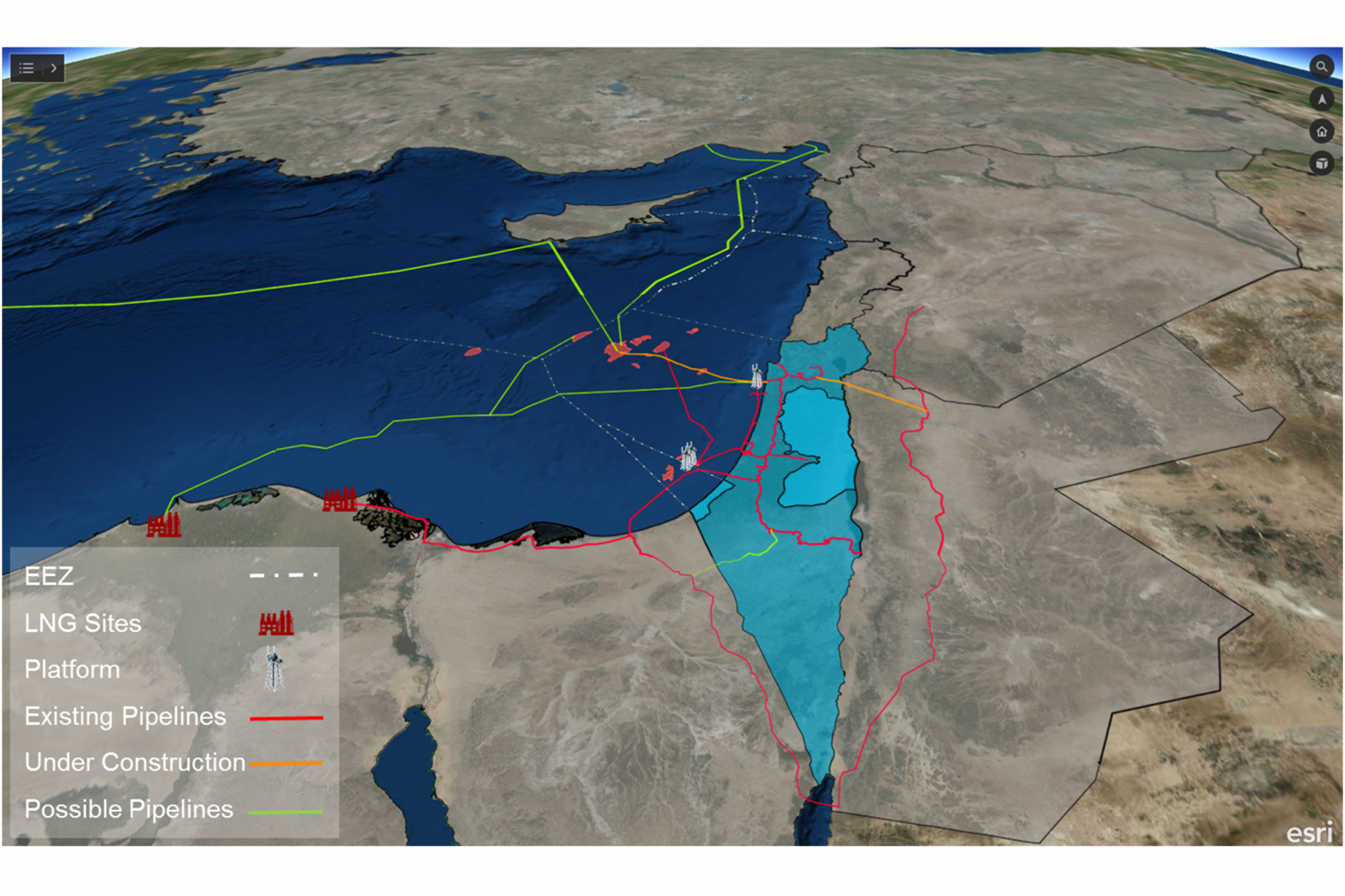Israel, Lebanon Set Maritime Boundaries on Path to Offshore Production
BAABDA/JERUSALEM (Reuters) - Lebanese and Israeli leaders finalized a U.S.-brokered maritime demarcation deal that brings a measure of accommodation between the enemy states as they eye offshore energy exploration.

The accord removes one source of potential conflict between Israel and Iranian-backed Lebanese group Hezbollah and could help alleviate Lebanon's economic crisis.
An offshore energy discovery - while not enough on its own to resolve Lebanon's deep economic problems - would be a major boon, providing badly needed hard currency and possibly one day easing crippling blackouts.
Offshore areas in the eastern Mediterranean and Levant have yielded major gas discoveries such as Israel's Leviathan field in the past dozen years, and interest has grown since Russia's February invasion of Ukraine disrupted gas pipeline flows.
Leaders from Lebanon, Israel and the United States have all hailed the deal as "historic," but the possibility of a wider diplomatic breakthrough remains slim.
As a result, there was no joint signing ceremony: Lebanese President Michel Aoun signed a letter approving the deal at his palace in Baabda in the presence of the U.S. official who mediated the accord, Amos Hochstein.
"We have heard about the Abraham Accords. Today there is a new era. It could be the Amos Hochstein accord," said top Lebanese negotiator and deputy parliament speaker Elias Bou Saab, referring to the 2020 U.S.-brokered normalization of ties between Israel and the United Arab Emirates and Bahrain.
Israeli Prime Minister Yair Lapid signed separately in Jerusalem, saying the deal was a "tremendous achievement" that had produced Lebanon's de facto recognition of Israel.
"It is not every day that an enemy country recognizes the state of Israel, in a written agreement, in view of the international community," Lapid told his Cabinet in broadcast remarks.
In a pre-recorded interview aired later on Thursday, Aoun said delineating the boundary would prevent war with Israel and that the full status of the southern border would be resolved later through "dialogue."
But he insisted the accord did not constitute a peace agreement with Israel, after having earlier said the deal was purely "technical" and would have "no political dimensions or impacts that contradict Lebanon's foreign policy".
Lebanon does not recognize Israel's right to exist and still considers itself at war with its neighbor, with laws barring contact with Israeli officials.
‘Confidence-Building Measure’
Lower-level delegations from each country headed to the United Nations' peacekeeping base at Naqoura along their contested land border, which has yet to be delineated.
There, the delegations entered the same tent, each standing on a side of a table, and submitted their signed copies of the deal to U.S. officials and their new coordinates for the maritime border to the United Nations, officially bringing the deal into force, an Israeli official and a Lebanese source told Reuters.
"I hope it will serve as a confidence-building measure that promotes more security and stability in the region and economic benefits for both countries," said the U.N.'s Special Coordinator for Lebanon Joanna Wronecka.
The accord comes days ahead of major political milestones for both Israel and Lebanon.
Aoun's term is set to end on Oct. 31 and political sources say he was keen to seal the deal as the crowning achievement of his six years in office.
Israel holds elections on Nov. 1, its fifth in less than four years.
Hochstein said the accord should be adhered to even if officials change on either side and the United States would continue to play a guarantor role to ensure it remains in force.
"If one side violates the deal, both sides lose," he said.
In a statement on Thursday, U.S. President Joe Biden said energy in the region "should not be a cause for conflict, but a tool for cooperation, stability, security and prosperity".
Sayyed Hassan Nasrallah, the head of Lebanon's powerful armed group Hezbollah, on Thursday called it a "very big victory for Lebanon."
He said the fighters and military resources that his group had mobilized as a form of pressure to ensure talks went well could now be de-activated, announcing: "Mission accomplished."
Nasrallah also said the Lebanese government had been careful to ensure that the negotiations and approval protocols had no hint of "normalization" with Israel.
(Reporting by Maayan Lubell, Dan Williams, Laila Bassam and Maya Gebeily; Writing by Maayan Lubell and Maya Gebeily; Editing by William Maclean, Nick Macfie, Toby Chopra and Jonathan Oatis)
Related News
Related News

- Keystone Oil Pipeline Resumes Operations After Temporary Shutdown
- Biden Administration Buys Oil for Emergency Reserve Above Target Price
- Freeport LNG Plant Runs Near Zero Consumption for Fifth Day
- Enbridge to Invest $500 Million in Pipeline Assets, Including Expansion of 850-Mile Gray Oak Pipeline
- Williams Delays Louisiana Pipeline Project Amid Dispute with Competitor Energy Transfer
- Evacuation Technologies to Reduce Methane Releases During Pigging
- Editor’s Notebook: Nord Stream’s $20 Billion Question
- Enbridge Receives Approval to Begin Service on Louisiana Venice Gas Pipeline Project
- Russian LNG Unfazed By U.S. Sanctions
- Biden Administration Buys Oil for Emergency Reserve Above Target Price




Comments